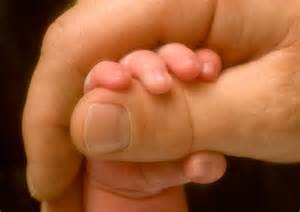The Government will this week agree to legislate to allow for fathers to take two weeks’ paid paternal leave. Minister for Justice Frances Fitzgerald will bring a memo to Cabinet with the support of the Minister for Social Protection Joan Burton confirming commitments made in Budget 2016.
The new statutory paternity leave will be paid at a rate of € 230 a week, the same as maternity benefit and based on the same PRSI contribution requirements. The legislation, which will be introduced by way of the Family Leave Bill, will also allow fathers to take the leave at any stage within 26 weeks of the birth.
Until now, Ireland has been behind the majority of European countries in its exclusion of paternity leave from employment law. New fathers typically used days from their annual leave, but this could be granted or denied at the employer’s discretion. From September fathers will have the option to apply for two weeks’ paid paternity leave following the birth of their child. The Labour Party has also proposed introducing three months’ parental leave if re-elected. The new benefit would be in addition to paternity and maternity leave and could be split between the two parents.
In Sweden, parents receive 480 days’ leave – including 390 at around 80% of their salary – for each child, with 60 days reserved for each parent and the remaining 360 shared as the couple choose. In practice, most fathers end up taking about three months’ leave. Other parts of the world have not come so far.
The United States
No paid parental leave; a maximum of 12 weeks’ unpaid parental leave for mothers and fathers
Africa
Many African fathers also get no paternity leave at all, although Kenya offers two weeks and French-speaking west Africa – Cameroon, Chad, Gabon, Cote d’Ivoire – allow 10 days. New dads in South Africa get a meagre three days.
Asia and the Pacific
Thailand, Pakistan, Malaysia and several others offer no paternity leave. Australia allows partners to share up to 52 weeks of unpaid leave, Japan offers a year’s unpaid leave to each parent, and South Korea gives allows both parents partially paid parental leave for up to one year.
Europe
New mothers mostly get between 14 and 22 weeks, and new fathers between two days (Greece) and three months (Italy), of paid leave. Many countries allow both parents to share as long as two (France) or even three years (Spain) of unpaid leave. Some are more generous: Germany allows new parents to take up to 14 months of parental leave on 65% of their salary. Luxembourg allows two six-month periods to be taken by either parent, paid at around €1,800 a month; the Czech Republic offers up to four years of parental leave, paid at between €600 and €400 a month, to “either or both” parents – although only one of them receives the benefit.

